A draft financial advice code published in October 2018 sets out proposed minimum standards of professional conduct for financial advisers and financial advice firms in New Zealand (it will replace the current code, which applies to a sub-set of financial advisers only). Cygnus Law supports the code overall but in submissions has proposed a number of potential improvements (Cygnus Law also made submissions on the discussion document that preceded the draft code).
Like similar professional codes, the financial advice code includes standards in relation to ethical behaviour, conduct, client care and adviser qualifications. The code will come into force in 2020, at the same time as significant new duties at law also come into force. The new law and the code are primarily aimed at improving customer outcomes, including by:
- removing artificial distinctions in law between types of advice and financial products
- permitting “roboadvice” (financial advice delivered without direct human involvement)
- imposing more duties and standards on advisers
- requiring all financial advice firms (including roboadvice providers) that advise retail customers to become licensed (details of the licensing requirements have not been released)
I’ve proposed as a key area for improvement adding more detail in some of the code standards. I think that the limited detail in some standards will make it hard for individual advisers and small advice firms to effectively interpret and implement the standards. I also think that the code should provide more examples of how code standards apply in practice, to help individual advisers and small advice firms to comply. The draft code only includes two examples, one of which is an example of a bank advice process.
Financial advisers have been particularly focused on the qualification requirements in code standards 9 to 12, which will require all advisers to hold specified qualifications (or their equivalent). Currently only a minority of advisers are required to hold relevant qualifications. I haven’t made many submissions on those standards but I have proposed a requirement that advisers complete a specified minimum number of CPD hours annually (instead of the requirement for each individual adviser to decide what an appropriate minimum should be).
The code was published several weeks before the RBNZ and FMA published their report on their review of New Zealand bank conduct and culture. The review followed interim findings by the Australian Financial Services Royal Commission, which noted concerns about how banks and others use (and misuse) advice processes. The RBNZ/FMA report states that “To maintain trust and confidence in our financial institutions and systems, banks need to think and act beyond minimum legal and regulatory standards, and champion business models that focus on customer interests.” I think that the report is a key guide to how the code could be improved. The report would support changing the example in code standard 4. That example appears to support the provision of narrow advice to a client, when that does not appear to be in the client’s interest. I have also proposed that the examples don’t support the use of jargon in client communications, including terms such as “underwriting” and “loading”.
I have proposed other changes to code standard 4, which is intended to support better customer understanding. An area for improvement is setting out more detailed and extensive requirements in relation to customer on-boarding, for customers’ benefit (and consistent with the RBNZ/FMA report recommendations), including requirements for client agreements:
- to be in writing (and also a requirement for advice to be provided in writing)
- to be provided & explained to customers before providing advice services
- to state whether or not on-going services will be provided
- to state when & how clients can be transferred to new advice firms & advisers
The Code Working Group will consider all submissions from interested parties and prepare an updated code. It may consult further. The code is expected to be finalised and approved in the first half of 2019. Details of the next steps are set out here.




